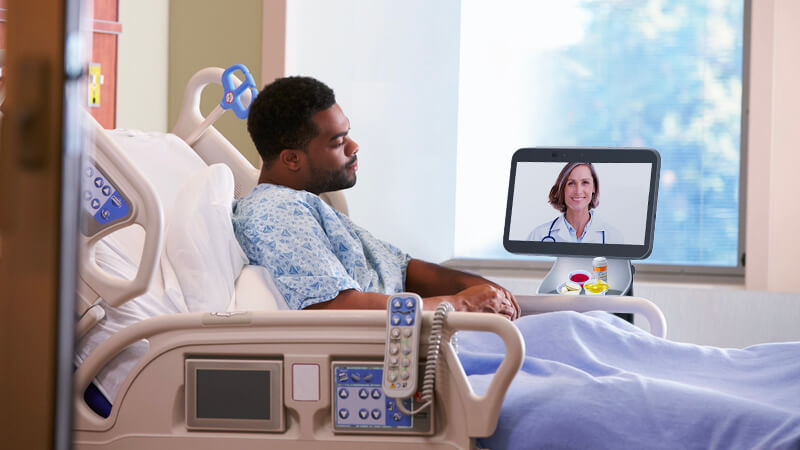The healthcare industry has been making significant strides in recent years with the advancement of robotics technology. Robotics in healthcare has shown potential to revolutionize the industry and create a positive impact on patient care. The use of robotics technology is helping to streamline clinical workflows, reduce human error, and increase safety in medical procedures. In this article, we will discuss the benefits of robotics in healthcare and highlight some of the latest robotic technologies in the industry.
Benefits of Robotics in Healthcare
Using robotics in healthcare enables a high level of patient care and a safe environment for patients and healthcare workers.
High-Quality Patient Care
Robotics technology has the potential to improve the quality of patient care by enabling doctors and nurses to provide more precise and accurate treatment. With the use of robotic technology, medical professionals can perform surgeries with greater precision, making procedures less invasive and reducing the risk of complications. Robotic technology is used for diagnostics and to monitor patients’ vital signs, leading to early detection and prevention of potential health issues.
Streamlined Clinical Workflows
Robotics technology can improve the efficiency and effectiveness of clinical workflows by automating repetitive tasks, such as medication delivery, blood sample analysis, and patient monitoring. In essence, this automation can free up medical professionals to focus on more complex tasks, such as diagnosis and treatment, leading to increased productivity and better patient outcomes.
Safe Work Environment
Robotic technology can improve the safety of medical professionals by reducing their exposure to hazardous conditions, and sanitising their environment. For example, robots can deliver medical supplies/lab samples to minimise human contact, reducing the potential spread of infections. In a clean environment like the hospital, robots can perform thorough cleaning with UV disinfection and sanitisation.
Types of Robots in Healthcare
Autonomous Mobile Robots
Autonomous mobile robots are self-guided machines that can move around the hospital autonomously. They perform tasks such as delivering medication, transporting equipment, and cleaning rooms. There are two main types of autonomous mobile robots in healthcare: service robots and social robots.
Service Robots
Service robots perform tasks that humans can do, such as delivering medication and transporting equipment. These robots have sensors and cameras that allow them to navigate around the hospital and interact with patients.
Social Robots
Social robots can interact with patients on a more personal level. They provide emotional support and companionship. These robots assist patients with cognitive impairments or to interact with patients who are isolated or lonely.
Surgical-Assistance Robots
One of the most notable applications of robotics in healthcare is surgical-assistance robots. These robots assist surgeons during surgical procedures by providing greater precision and control. Surgical robots can also make procedures less invasive, resulting in shorter hospital stays, reduced pain and bleeding, and quicker recovery times. These robots contain advanced imaging technologies, allowing surgeons to visualize the surgical site in real time.
Modular Robots
Modular robots are another type of robotics technology in healthcare. These robots are highly customizable and can perform a wide range of tasks. They can perform specific functions, such as medication delivery or wound care, and contain sensors to collect data about patient health.
Robots—The Future of Medicine
In conclusion, robotics technology is transforming the healthcare industry, and the benefits of this technology are becoming increasingly clear. Robotics in healthcare has the potential to improve patient care, streamline clinical workflows, and create a safer work environment for medical professionals. From surgical-assistance robots to modular robots and autonomous mobile robots, the possibilities for robotics technology in healthcare are endless. As robotic technology continues to advance, we can expect to see even more exciting developments in the future. If you are interested in implementing robotics technology in your healthcare facility, consider partnering with us at 365Robot.

